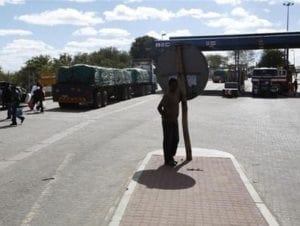With government’s proposal of a new border management agency, there are great hopes that the transportation of goods will improve at South Africa’s borders.
Experts have warned that delays at borders such as Beitbridge have a negative effect on trade between South Africa and its neighboring states, as proven last week where the processing of travellers at Beitbridge was affected by a go-slow by Department of Home Affairs workers, which resulted in delays of five hours. A study by African Development Bank chief economist and vice-president, Mthuli Ncube, has found that traffic volumes at Beitbridge during the festive season could average more than 12 000 travellers with around 3 500 vehicles passing through. According to the study, delays, high congestion and inefficient service delivery at the border translate into waiting times of 33 to 45 hours and transaction costs of US$29.3 million to US$35 million (R253.5 million to R302.8 million) per annum. The Road Freight Association and South African Association of Freight Forwarders, which cover the multibillion-rand transport industry, would like to see greater efficiencies at South Africa’s ports of entry, which include road, air, sea and rail. According to the Department of State Security, the introduction of the border management agency, which will overhaul and manage South Africa’s borders, is still on track to launch in 2014.In his budget vote speech in May, Minister of State Security, Siyabonga Cwele, said the business case for the establishment of the agency by 2014 would be processed by the cabinet committee this financial year.
According to Cwele, the new agency will address the long-standing problems of fragmentation, duplication and the ineffective use of resources in the border management system. Mike Walwyn, the vice-chairman of the freight forwarders association, said the current border system is relatively efficient but any improvements will be greatly welcome. “Coordination needs to be improved. All the agencies are currently doing their own thing, and if you can coordinate all of these and make it a happier experience for the user, then good.” “You’ll find that customs has some rules in place that (don’t) work for Transnet. The Department of Agriculture is another one. This leads to longer delays and greater costs, of course,” he said. The border agency will take over from the Border Control Operational Coordinating Committee, which was mandated in 2005 to manage the borders.





